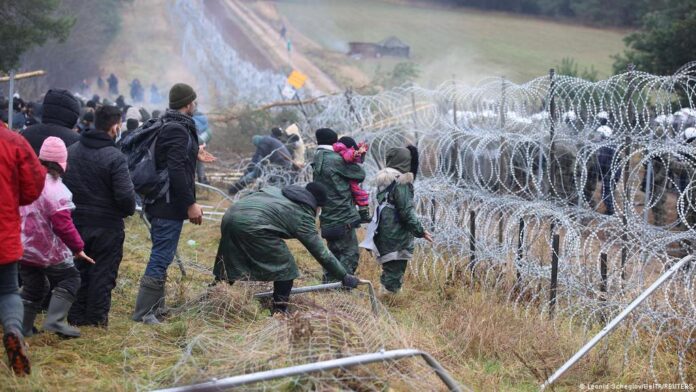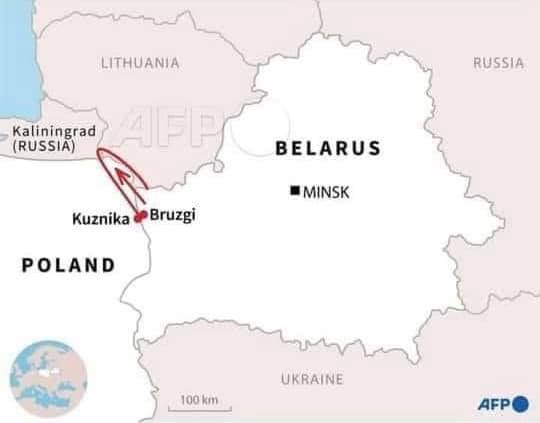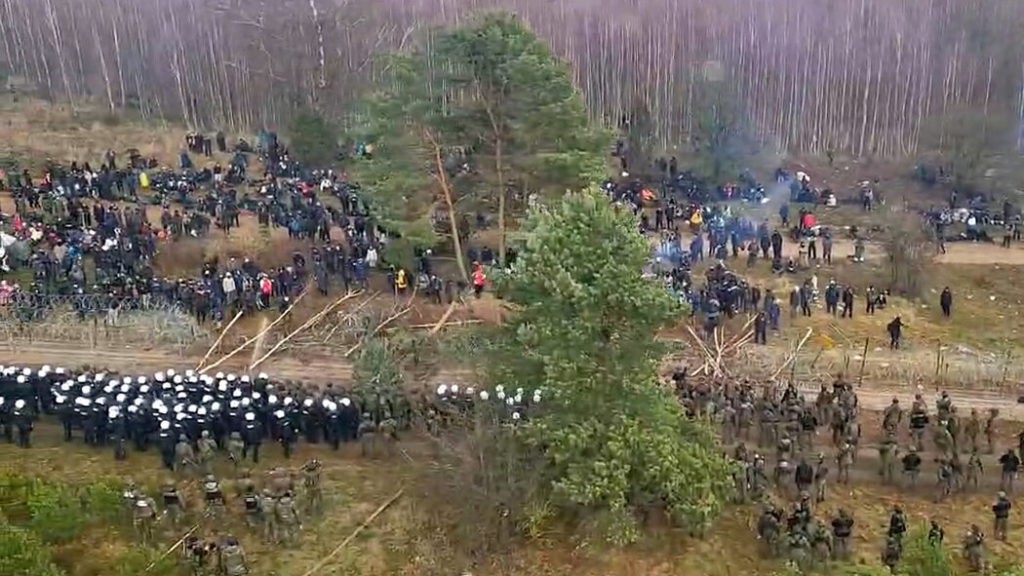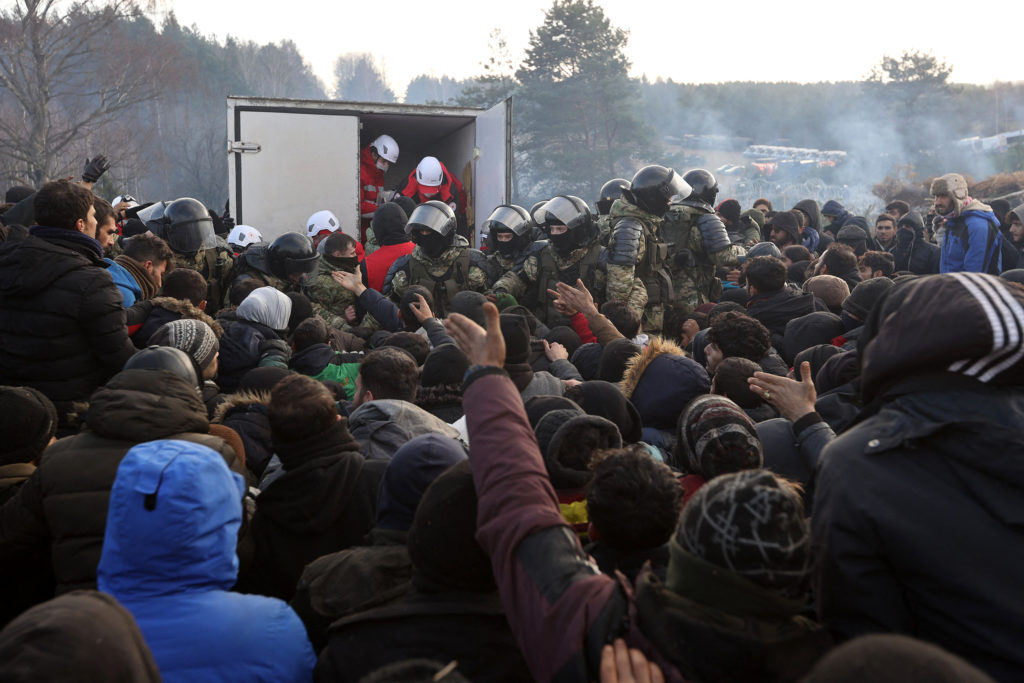
Lithuanian news has recently been focused on the increasing numbers of migrants flooding the Lithuanian border with Belarus. Various aspects of the growing crisis are being analyzed on news websites such as RFERL.org (Radio Free Europe/Radio Liberty). We turn to reports posted within the past few days to provide background on the growing crisis.
This week EU members Poland and Lithuania said they are stepping up security at their borders with Belarus as Warsaw reacted to thousands of migrants massing near the Belarusian side of the border. In recent months, thousands of migrants from the Middle East, South Asia, and Africa have attempted to illegally enter Poland and fellow EU members Latvia and Lithuania from Belarus.

The EU has accused Belarusian leader Alyaksandr Lukashenka of flying in migrants and funneling them to the bloc’s borders to retaliate against Brussels for sanctions imposed over a sweeping crackdown on the political opposition since last year’s disputed presidential election. Deputy Foreign Minister Piotr Wawrzyk told Polish public radio that Belarus wants to cause a major incident, preferably with shots fired and casualties.
Polish Defense Minister Mariusz Blaszczak tweeted on November 8 that more than 12,000 soldiers have been deployed on the border, up from the 10,000 soldiers that were there recently, adding that a volunteer Territorial Defense force was put on alert. He said that his ministry, and the Interior Ministry, are “prepared to defend the Polish border”. The Belarusian State Border Committee claims that the “inhumane attitude of the Polish authorities made the refugees to go for this step of despair”.

The deepening crisis prompted calls for the EU to take swift action against Belarus to protect the bloc’s borders, following repeated warnings and protests from Brussels. After speaking with the prime ministers of Poland, Lithuania, and Latvia, European Commission President Ursula von der Leyen called on member states to approve extended sanctions on Belarusian authorities responsible for this hybrid attack and explore how to sanction and blacklist third-country airlines that are active in human trafficking.

Poland has already imposed a state of emergency at the border, put up razor wire, and increased the number of soldiers and guards to stem the flow of migrants crossing from Belarus. The building of a $407 million wall on its eastern border has also been approved.
Agnė Bilotaitė, interior minister of Lithuania, said on November 8 that her country was also moving troops to its border with Belarus to prepare for a possible influx of migrants. The cabinet in Vilnius will also discuss whether to declare a state of emergency in the area bordering Belarus. She did not say how many soldiers would be deployed and precisely where they would be moved.
A NATO official called Minsk’s alleged use of migrants to put pressure on the EU “unacceptable”, and said the alliance, with members Poland, Lithuania, and Latvia, is worried about “escalation” on the border with Poland and stands ready to assist its allies and maintain safety and security in the region.
Exiled Belarusian opposition leader Svyatlana Tsikhanouskaya urged a “strong response” from the European Union, and said the matter should be discussed at the United Nations Security Council. She noted that Belarus’ regime is escalating the border crisis, pushing migrants to the EU border by armed men. “The migrant smuggling, violence and ill-treatment must stop”.
Abridged from RFERL.org





























